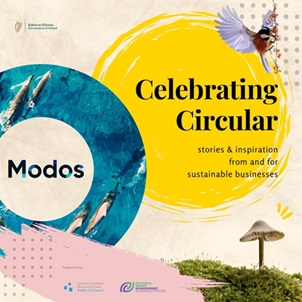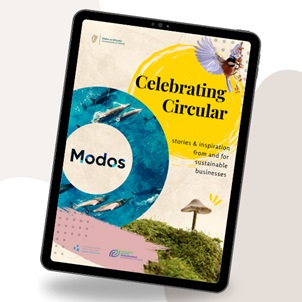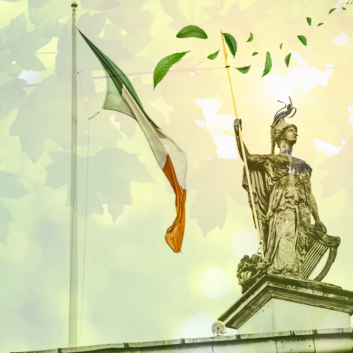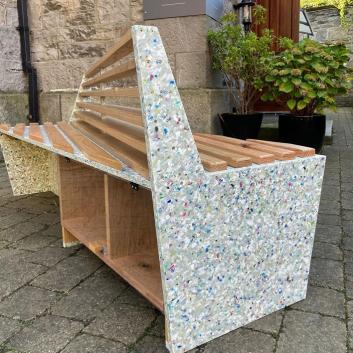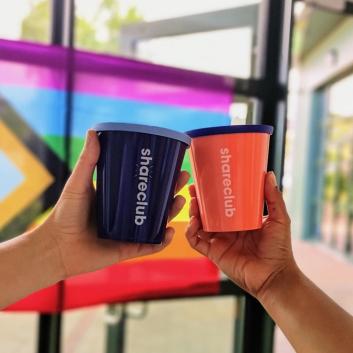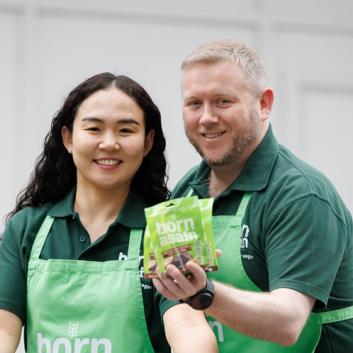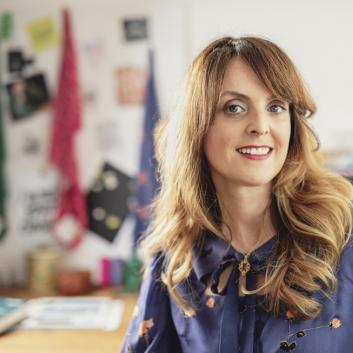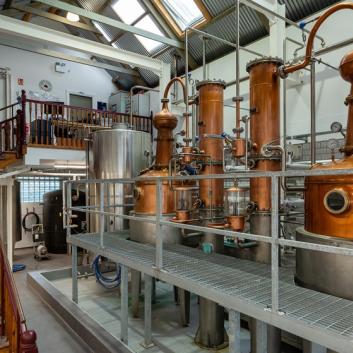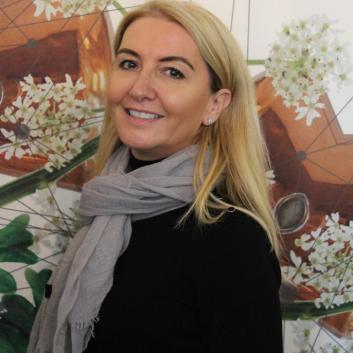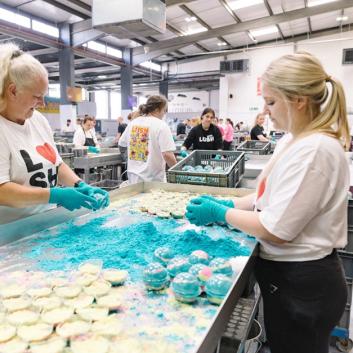Catalysing societal change through reimagining the cultural sector and creative industries
This article is part of the 'Celebrating Circular` initiative and story collection that spotlights trailblazer Irish businesses making strides towards a more sustainable and low-carbon economy.
Envisioning a future where Ireland’s cultural sector and creative industries operate in a restorative and regenerative way, Michael Soro and Megan Best brought Native Events to life in 2017 to provide sustainable solutions.
They embarked on a journey to change the festival industry as a starter and worked on projects to get more events to adopt sustainability practices by using their services, such as integrating solar generators and sound systems or introducing deposit schemes to avoid single-use plastic and selective waste management, among other things.
Even though they made steady progress and gathered a skilled team, the pandemic forced them to pause. Instead of looking at this as a setback, they used the break from busyness to reflect on what they had learned, where the market was going, and how they could scale their impact.
They bounced back with new ideas and expanded their offerings, which allowed them to work on various projects, such as creating the Guide for Plastic-Free Festivals and Events or designing the Sustainability Toolkit for the Arts.
Megan says that for her "The circular economy is all about sharing - materials and assets, yes, but also ideas and connections.”

Redirecting the sustainability focus
Transitioning from working in the cross-section of art and sustainability, Kate O'Neill joined Native Events as a Communication Specialist to expand their reach and work with partners.
“We have the ethos that cultural events and activities can be a catalyst for societal change. We see a festival as a microcosmos for change since you have a group of people together doing things they would also do on an everyday basis – this is where you can intervene,” Kate explains their approach.
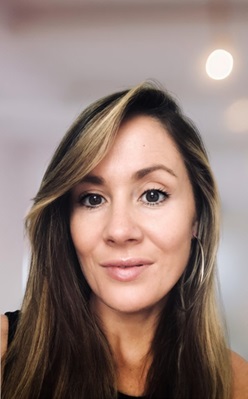
She adds that with planning, you can pinpoint actions that would make a difference, but you also need smart communication to get people to make different decisions, such as using public transport.
Moving into education and training
Besides events, Native Events now also works with organisations and institutions where education and training are crucial in embedding sustainability projects.
Programme Manager Brecken Byron leverages her technology and education development background to design engaging, hands-on learning experiences that could drive transformative change.
"Our goal is to achieve that shift in thinking. To really integrate sustainability, you need education. Either people are open to this new thinking or are resistant; no one wants to fundamentally change their lives as it is very uncomfortable. So, we aim to manage the journey of change and get them to buy in,” Brecken explains.
As part of its expansion, Native Events is now piloting an action-oriented online course that focuses on adopting practical steps towards sustainability in the arts and other industries.
The fear associated with change
Kate adds that sustainability and change can be scary to look at, and they need to be mindful of that in all their work.
Keeping it real and losing the jargon can also help. It is a great practice for her to use their garden at home as a “nature classroom” with her son, which gives her that everyday aspect besides enjoying spending time together outdoors.
“The perception is that embedding sustainability is expensive and requires huge changes. Instead, we show that this is doable and can be broken down into practical steps considering the timeline and budget,”
says Kate, highlighting that building trust is crucial in their work.
She explains that, especially with events, you can never be 100% accurate since many things can modify any predicted scenario.
“For instance, one of our flagship collaborations is the carbon management of the St Patrick’s Festival, which includes a lot of logistics and multistakeholder involvement. We use a framework that allows us to manage all available data besides setting up a baseline to get a sense of ‘normal’ and lay out a roadmap for changes.”
Walking the walk and talking the talk
Besides providing educational opportunities to others, the team is keen to constantly upskill and sharpen their knowledge.
As CEO of Native Events, Megan Best joined the very first MODOS course, which was more of a pilot, as she recalls.
“I thought I had a good sense of the circular economy. It was brilliant to find out how much I didn't know,” pointing out that it was an eye-opener for her to learn about new areas such as modular design or industrial symbiosis.
It further propelled them to build new connections and even enrol in another climate-focused accelerator programme for entrepreneurs, which they probably wouldn't have done without MODOS.
The power of collaboration
Besides being strategic about sustainability and aiming to integrate projects across organisations, Native Events runs public involvement initiatives as well.
“We collaborated with Nature Trust to help rebuild Irish native woodlands by organising the Acorn Gathering event in 2023 where people could come along to Wicklow to collect acorns while learning insights from an ecologist on why this is so important,” Kate shares.
“Collectively, we gathered around 150 kg of acorn, which means that about 15,000 oak seedlings can be planted.
Another project that Brecken found fascinating is the Arts Council Climate Action Training Program, where they support about 150-200 organisations in crafting their own sustainability policies.

She adds: “All projects funded by the Arts Council need to implement sustainability initiatives as part of a new framework. We provide guidelines, organise seminars, peer-to-peer sessions, and offer tailored support to practically hold their hands to get them over the finish line.”
Brecken shares that it is exciting and motivating for her to work on diverse projects at Native Events so she can play her part in positively influencing people and sectors.
Explore other inspirational stories as part of the Celebrating Circular initiative supported by the Regional Waste Management Planning Offices and Dublin City Council.








